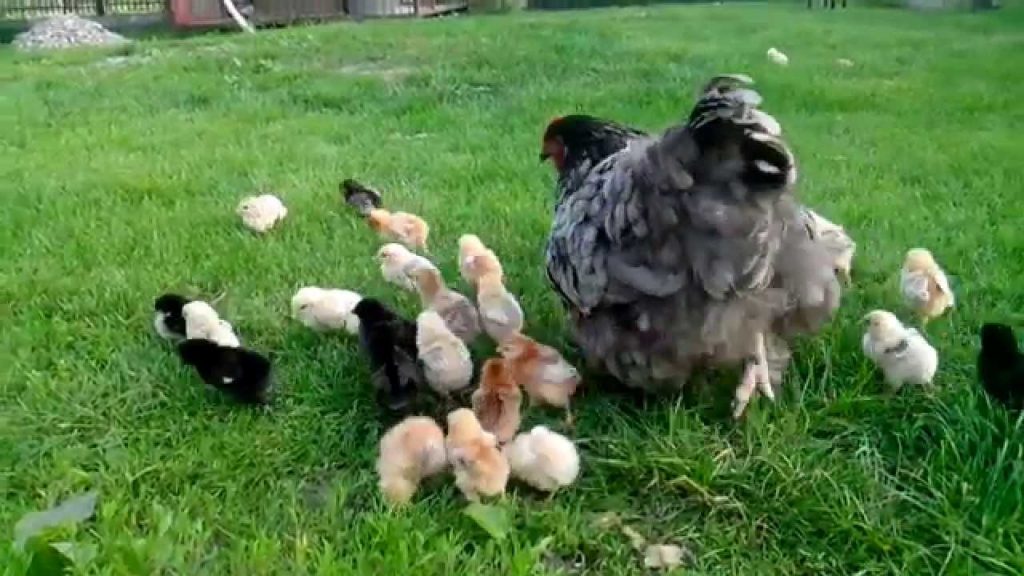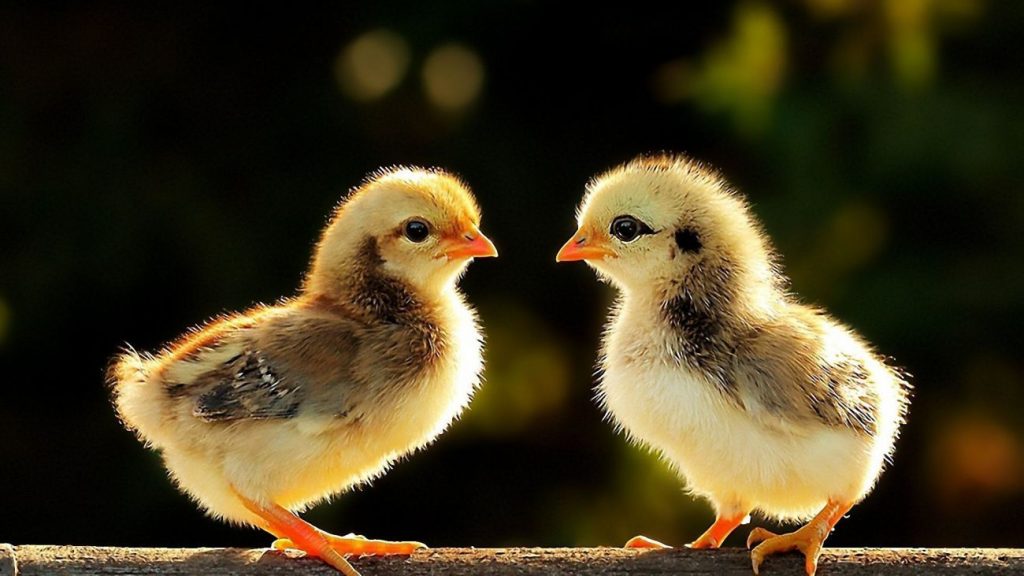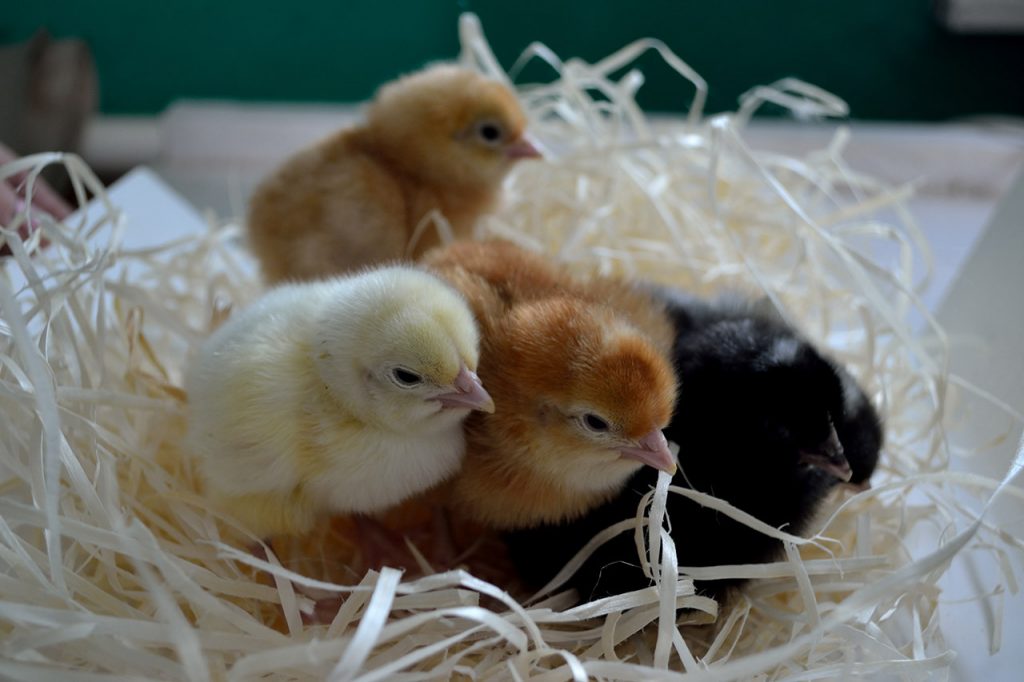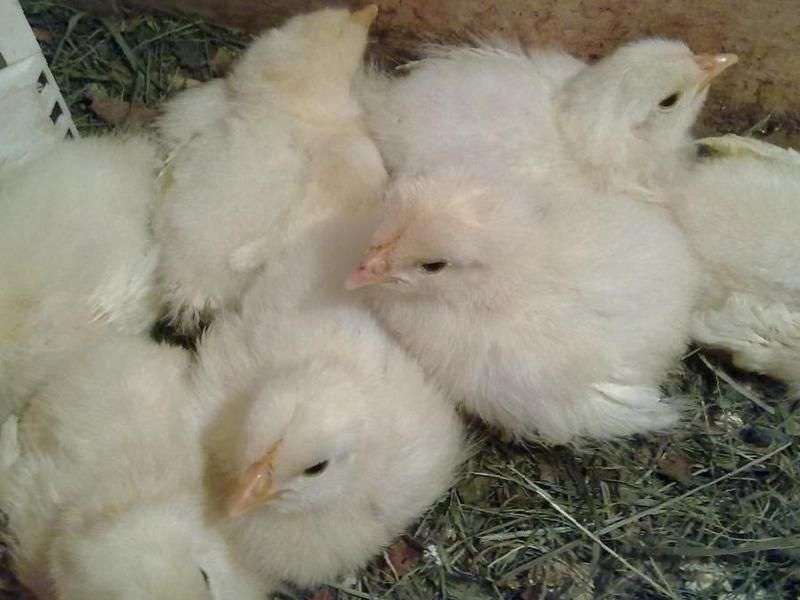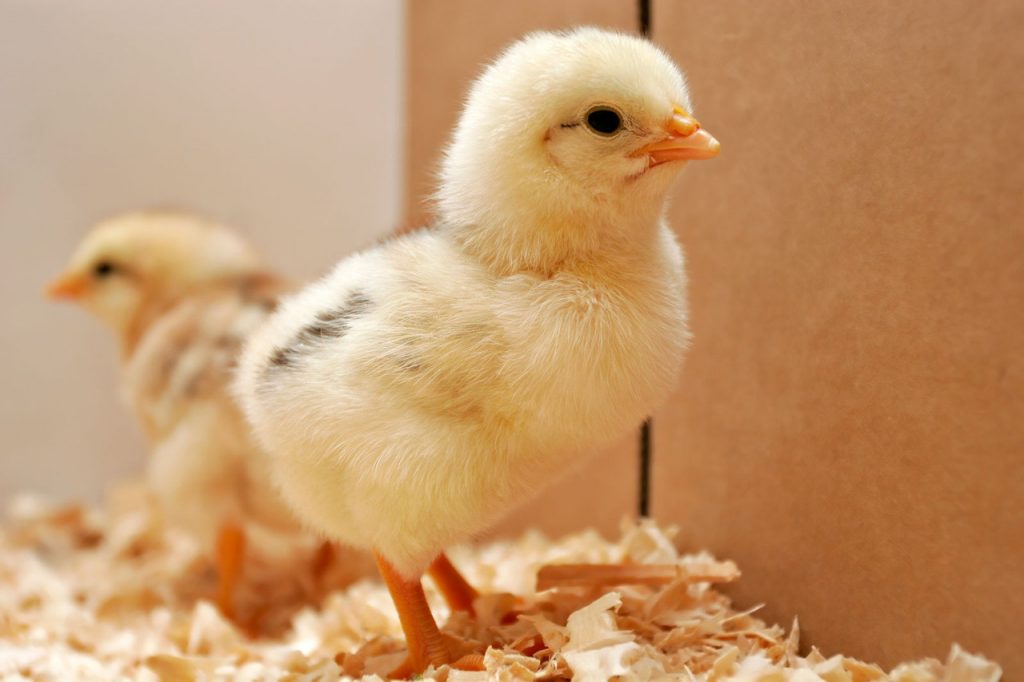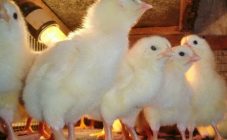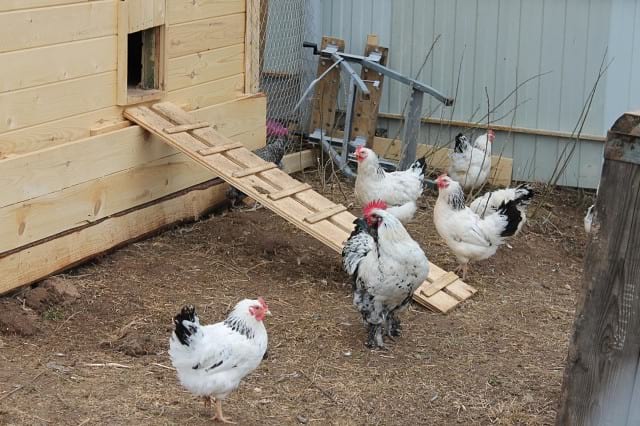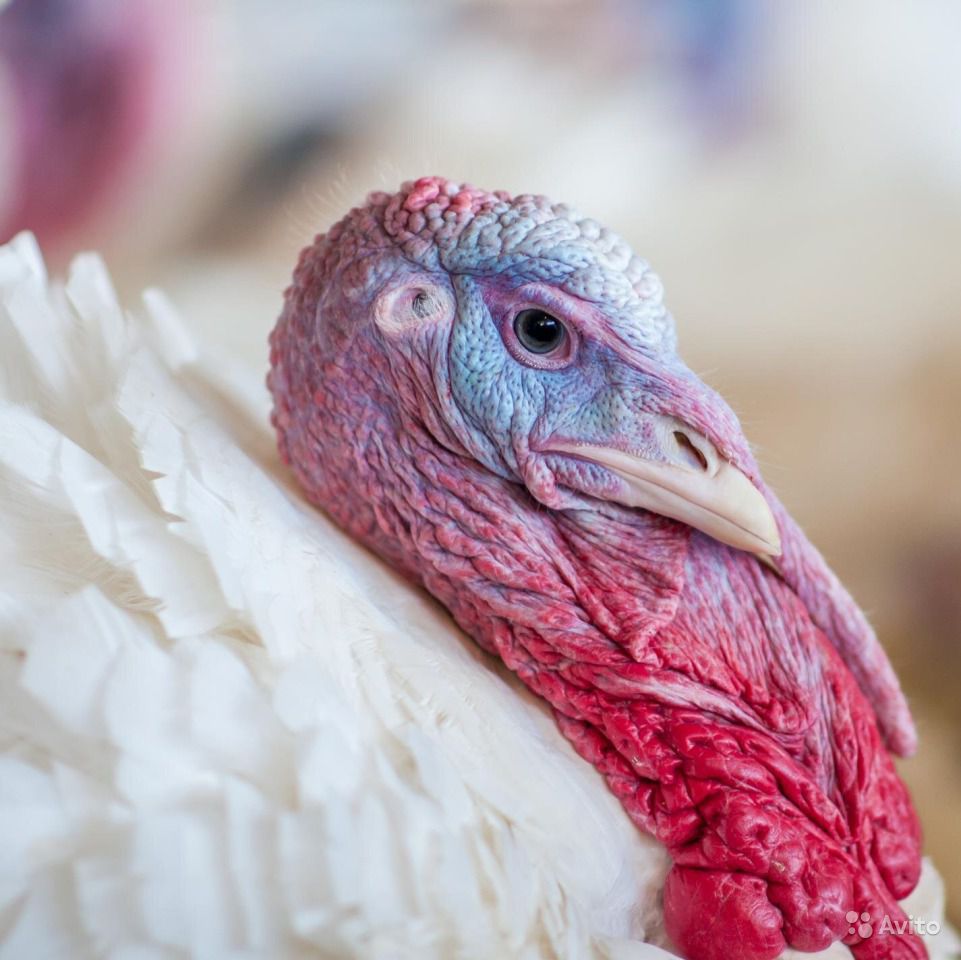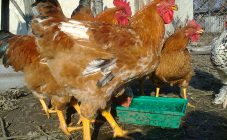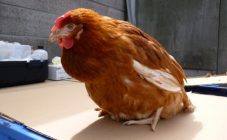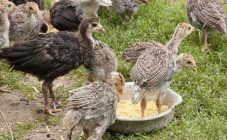Content:
The most common malaise in chickens of egg and meat breeds, broilers is a disorder of the gastrointestinal tract. This article discusses the causes of the disease, as well as how to prevent diarrhea in chickens, how to cure it.
Rules for caring for chickens at home
In order for a good laying hen, a handsome rooster or a powerful heavy broiler to grow from a small fluffy ball, the poultry farmer needs to take care of creating suitable conditions for the bird.
Heat
Immediately after the chick leaves the egg, it is allowed to dry slightly in the incubator, and then placed in a box or a special brooder. In the first week, the temperature in the brooder should be maintained at +32 - +33 degrees.
For heating use:
- IR lamp or ordinary incandescent lamp;
- heating elements, such as "Good Heat";
- jars or bottles of hot water.
By the behavior of the chickens, it is clearly visible whether they are cold or not. If the kids are gathered in a bunch and squeak loudly, it is necessary to increase the temperature. If the chickens lie on the floor with their wings spread out and breathe heavily, they are too hot.
Starting from the second week, the temperature is gradually reduced, bringing it to the usual one by the month, the level of +20 - +22 degrees.
Shine
Until the third week of life, a dim light should burn in chickens around the clock. The chicks sleep and wake up in such a way that they sleep and eat repeatedly during the day.
By the age of one month, the lights begin to be turned off at night for several hours, gradually bringing up to 8 hours.
Feeding
Chicks begin to show an active interest in food at the end of the first day of life, sometimes on the second day. The baby's first food should be highly nutritious. It can be a high-quality starter feed in granules (loose is too dusty) or a hard-boiled egg, chopped and boneless in corn grits.
The first portions of food are poured on top directly on the floor of the box (you can lay a dark cloth or paper). The chick sees the movement of falling pieces and instinctively pecks food.
Violation of any of these points can lead to health problems, including diarrhea.
Why a chicken can carry
Not always the cause of diarrhea is poor-quality food, often it is one of the symptoms of a viral or parasitic disease. The color and consistency of the bowel movements can be used to determine the cause of your bowel disorder.
- Yellow or brown frothy droppings indicate chicken poisoning with poor quality feed. This can be expired feed, sour mash or porridge, rancid water.
- White-green stools with foam or water, which is accompanied by a runny nose in the bird, heavy breathing with wheezing, indicates a pasteurrelosis disease. This is a serious disease, the treatment of which is not advisable, you will have to get rid of the livestock. It can also be a symptom of Newcastle disease.
- Red, brown-bloody or yellow diarrhea with bloody blotches causes coccidia - parasites. The disease is called coccidiosis or eimeriosis. A bird becomes infected with coccidia through a dirty litter, from individuals who have already been ill (they remain carriers of parasites for life). Crowded brooder, dampness and dirt contribute to infection.
- White stools indicate pullorosis (salmonellosis), an infection that is dangerous to humans. The bird is depressed, emaciated, stands ruffled and lowered its wings.
Sometimes white droppings occur when poultry is poisoned with table salt.
Often, undigested food particles can be seen in the droppings, which means that the food is too coarse for the chickens.
Treatment of diarrhea in small chickens
The period most susceptible to disease is the age of chickens up to 3 months. At this time, especially a lot of attention should be paid to keeping and feeding.
What to do first at home if chickens vilify?
First, the feed and water are checked for freshness. Often, a boiled egg, porridge or cottage cheese, being at a high temperature for a long time, simply sour. Chickens peck on spoiled food and get an upset stomach. In this case, it will be enough to remove the spoiled food, rinse the feeder and put in fresh food.
You can add to the water:
- tea leaves;
- pink solution of potassium permanganate;
- camomile tea.
Rice water is a good fixing agent. Chickens are reluctant to drink it in its pure form, but if you mix a crumbly mash on it, they will peck it with pleasure.
Under the stress of transferring to a new brooder, as temperatures drop, short-term diarrhea can be observed in chicks. To mitigate the effects of stress, you can drink the chickens with a solution of ascorbic acid (1 tablet per liter of water) for 5 days.
Often, diarrhea can be caused by the presence of worms in chicks. If the breeder flock has not been dewormed prior to breeding season, chicks may become infected while still in the egg. It is possible to get the parasite through dirty equipment, general walking, green food. The following drugs will help expel worms: Levamisole (the drug is dissolved in drinking water), Alben, Panakur, Fenbendazole. The dosage of drugs (except for Levamisole) is calculated based on the live weight of the bird, the tablets are crushed and added to the feed.
It is enough to replace the feed, review the conditions of detention. Folk remedies will help cure diarrhea: strong tea, decoction of chamomile or oak bark, pink solution of potassium permanganate.
How to treat white diarrhea in small chickens
With a high probability, it can be argued that liquid white droppings in a chicken indicate the presence of infection in the body. Antibiotics that affect bacteria in the body (Levomitecin, Amoxiclav, Enroxil) will help to heal the livestock.
Broiler chickens vilify what to do
Broilers differ from other chicken breeds by their intensive growth and fast metabolism. The poultry makes high demands on the quality of feed and keeping conditions. The onset of diarrhea in a bird quickly leads to dehydration and exhaustion. Losing weight is then difficult to catch up, which leads to financial losses.
The reasons for liquid droppings in broilers are the same as in simple chickens:
- poor quality feed;
- inappropriate conditions of detention;
- worms;
- infections.
Since broilers are purchased by farmers or private owners from poultry farms and markets, there is a high probability of purchasing infected poultry.It looks like a healthy chicken, after a few days it begins to vilify and weaken. The most common infectious diseases of chickens are: salmonellosis, pasteurellosis. Coccidiosis causes great damage to livestock.
What to give broiler chickens against diarrhea if consultation with a doctor is not possible? If the poultry farmer suspects that the nature of the diarrhea in his poultry is of viral origin, medications will be required to quickly cure the broiler chickens.
In a human first-aid kit, there will definitely be several tablets of chloramphenicol - a sure remedy for indigestion. The drug is effective for salmonellosis. For 1 kg of live weight of poultry, 30-50 mg of chloramphenicol will be required. The term of treatment is 3 - 5 days.
Furazolidone is used for suspected pasteurellosis. The powder is mixed with food in a dosage of 10 heads:
- chickens up to 10 days of age 0.02 mg;
- 10 to 15 days 0.03 mg;
- after 15 days 0.04 mg.
Biomycin is a broad spectrum agent. It is used in an aqueous solution for drinking, at the rate of 1 mg per liter of liquid.
Coccidin (or sulfadimezin), Baykoks is used when chickens are infected with coccidia. Drink the medicine dissolved in water (Baycox) for 5 - 7 days, pouring 1 ml of the drug per 1 liter of water. Coccidin is mixed into the feed at the rate of 250 mg per kg of feed for 4 days, for another week the medicine is given at a dosage of 125 mg per kg of feed.
Tetramisole is used to expel worms from the body of a bird. The drug is mixed with feed at the rate of 3 - 5 g per individual. It is given once.
Prevention
To avoid health problems in chickens, a number of feeding and housing rules must be followed.
- Maintain cleanliness in the brooder, change the dirty litter in time (it is convenient for small chickens to lay disposable diapers that absorb moisture well). Install drinkers and feeders so that poultry droppings do not get into them.
- Keeping chickens on mesh floors for up to 4 months will completely eliminate the likelihood of their infestation with coccidia.
- Use only high quality and fresh feed. When using wet mash for feeding, do not leave food for more than 2 hours in the trough. Rinse well the dishes containing the food.
- Eliminate overly crowded keeping of young stock. Monitor the humidity in the chick room.
- Babies are released for walking no earlier than 1.5 months. The joint keeping of adult poultry and chickens is not allowed until the latter reach the age of 4 months.
- When buying a new bird, you must quarantine for about 3 weeks. Purchased chickens are kept in a separate room from other birds, under close supervision.
As in many other cases, it is much easier to comply with preventive measures than to treat the disease that has arisen. Therefore, it is better to focus the main efforts on this. But even in case of problems, there is no need to panic. Serious illnesses do not come to private farms too often, but the rest can be dealt with on their own.
